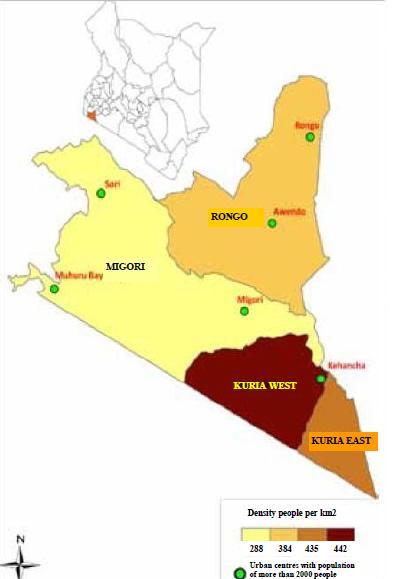Located in the southwestern part of Kenya, Migori County offers a vibrant blend of scenic landscapes, rich cultural heritage, and friendly communities. From the shores of Lake Victoria to the rolling hills of Ruma National Park, this hidden gem of a county promises an unforgettable experience for nature enthusiasts and adventurers alike. With its diverse range of attractions, including traditional markets, historical sites, and wildlife reserves, Migori County is a destination that will leave you with cherished memories and a deeper appreciation for the beauty of Kenya.
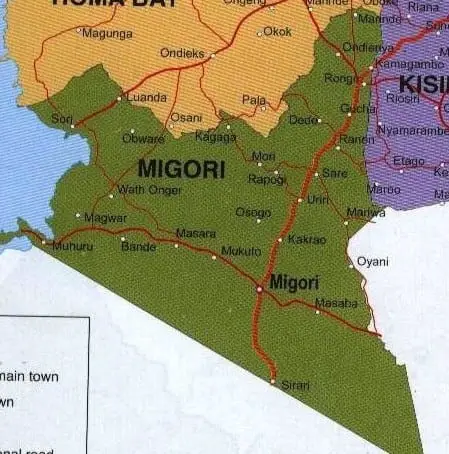
This image is property of images.citizen.digital.
Geography
Location
Migori County is located in the southwestern part of Kenya. It borders Homa Bay County to the north, Kisii County to the northeast, Narok County to the east, Tanzania to the south, and Lake Victoria to the west. The county is situated between latitude 0° 27′ to 1° 6′ South and longitude 34° 25′ to 34° 79′ East.
Size
With a total land area of approximately 2,586 square kilometers, Migori County is one of the smaller counties in Kenya. However, despite its size, the county boasts remarkable natural beauty and diverse landscapes.
Relief
The relief of Migori County is characterized by rolling hills, valleys, and flat plains. The county’s terrain varies from the low-lying areas around Lake Victoria to the higher elevations of the Nyanza Escarpment. These varying altitudes contribute to the county’s diverse ecosystems and agricultural potential.
Climate
Migori County experiences a tropical climate with two main rainy seasons. The long rainy season occurs from March to June, while the short rainy season occurs from October to December. The average annual rainfall in the county ranges from 1,250 to 2,000 millimeters. The temperatures are relatively high, with average highs ranging from 25°C to 30°C throughout the year.
Demographics
Population
As of the latest census data, Migori County has an estimated population of over one million people. The population is diverse, comprising various ethnic groups from different parts of Kenya and neighboring Tanzania.
Ethnic Groups
The county is home to several ethnic groups, including the Luo, Kuria, Suba, and Abasuba. The Luo community is the largest, making up the majority of the population. The diversity of ethnic groups in Migori County adds to the cultural vibrancy and richness of the region.
Languages
The primary language spoken in Migori County is Dholuo, which is widely spoken by the Luo community. However, due to the county’s ethnic diversity, other languages such as Kiswahili, English, Kuria, and Suba are also spoken.
Religion
Religion plays a significant role in the lives of the people of Migori County. The majority of the population follows Christianity, with various denominations represented. Additionally, there is a significant Muslim population, particularly among the Kuria community. Traditional beliefs and practices also continue to have cultural significance for many residents.
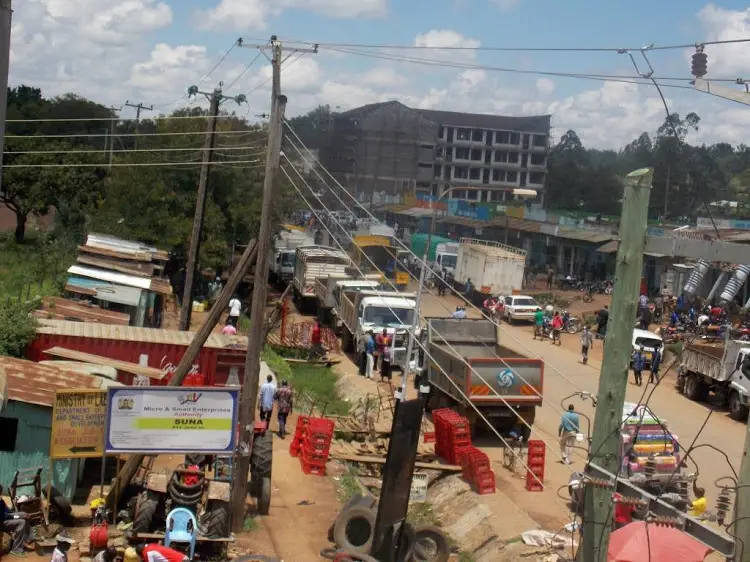
This image is property of bayrisefish.com.
Administrative Divisions
Sub-Counties
Migori County is divided into eight sub-counties, namely: Rongo, Awendo, Suna East, Suna West, Kuria East, Kuria West, Uriri, and Nyatike. Each sub-county is further divided into several wards, each with its own administrative unit.
Constituencies
The county is divided into six constituencies: Rongo, Awendo, Suna East, Suna West, Uriri, and Kuria East. These constituencies are represented by elected members of the National Assembly, who play a crucial role in the county’s governance and development.
Wards
There are a total of 40 wards in Migori County, each with its own unique characteristics and development needs. The wards are represented by elected Members of County Assembly (MCAs) who voice the interests and concerns of their respective constituencies.
Major Towns
Migori County has several major towns, including Migori Town, Awendo, Rongo, and Kilgoris. These towns serve as economic and administrative centers within the county, offering various amenities and services to the residents.
Economy
Agriculture
Agriculture is the backbone of Migori County’s economy, employing a significant portion of the population and contributing to both subsistence and commercial farming. The fertile soils and favorable climatic conditions make the county suitable for a wide range of crops, including maize, sorghum, millet, beans, bananas, and various vegetables.
Fishing
Being located along the shores of Lake Victoria, Migori County benefits from its fishing industry. Fishing communities thrive in towns such as Muhuru Bay and Sori, where local fishermen engage in both commercial and subsistence fishing. The fish caught, notably Nile perch and tilapia, provide an essential source of protein and income for the local population.
Mining
Migori County is known for its significant gold deposits, which present opportunities for small-scale mining activities. Artisanal miners engage in gold mining, with various sites across the county. While gold mining contributes to the local economy, there are ongoing efforts to regulate the sector and ensure responsible and sustainable practices.
Tourism
Migori County has immense tourism potential, with its diverse natural attractions and cultural heritage. Visitors can explore scenic landscapes, visit cultural sites, and engage in recreational activities such as camping, birdwatching, and boat rides on Lake Victoria. The county also hosts various cultural festivals, showcasing traditional practices, music, dance, and local cuisine.
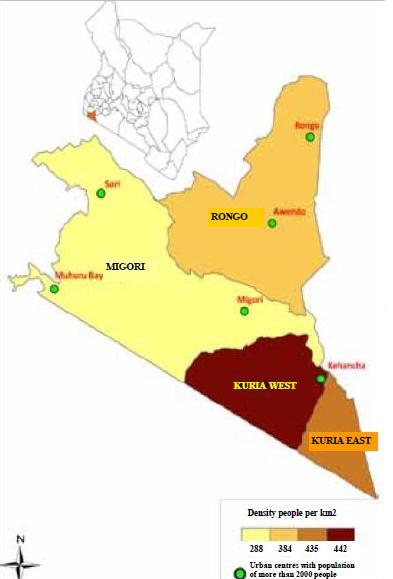
This image is property of opencounty.org.
Infrastructure
Roads
Migori County has an extensive road network that connects its towns and villages. Major roads like the Kisii-Migori Road, Awendo-Rongo Road, and Migori-Homa Bay Road contribute to improved connectivity and enhance transportation of goods and services within the county and beyond.
Railways
The county is not directly served by a railway line, but the nearby Kisumu City has a railway station that provides convenient access to other parts of the country. Plans are underway to extend the railway line from Kisumu to neighboring counties, which will further enhance transportation in Migori County.
Airports
The Migori Airstrip is the primary aviation facility in the county, providing domestic flights to and from Nairobi and other major towns. Nearby Kisumu International Airport offers international flights and serves as an alternative for those traveling to or from Migori County.
Ports
Lake Victoria is a vital waterway for Migori County, and there are ports and landing sites along its shores. These ports facilitate fishing activities and transportation of goods and passengers, serving as important trade and transportation hubs for the region.
Education
Schools
Migori County has numerous primary and secondary schools, catering to the educational needs of its young population. These schools provide quality education and strive to equip students with the necessary knowledge and skills for a brighter future. Efforts are being made to improve infrastructure and access to education in rural areas.
Libraries
Libraries play a crucial role in providing access to information and promoting a reading culture. Migori County has several public and school libraries, serving as valuable resources for students and the general public. These libraries offer various educational materials and opportunities for research and learning.
Colleges
Migori County has both public and private colleges that offer vocational training and skills development. These colleges provide courses in fields such as agriculture, business management, nursing, and information technology, equipping students with practical skills for employment and self-empowerment.
Universities
The county hosts several universities and campuses, offering a wide range of degree programs and courses. These institutions provide higher education opportunities to the residents of Migori County and attract students from other regions. The universities contribute to the intellectual growth and development of the county.
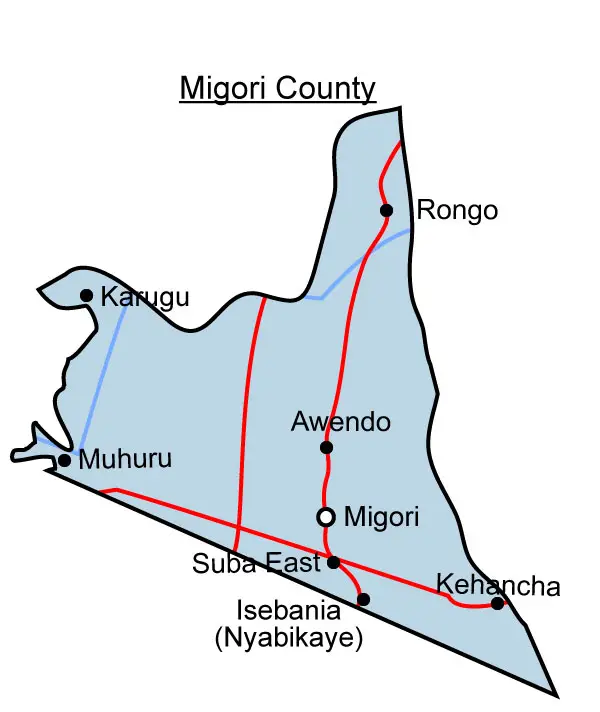
This image is property of elimufeynman.s3.amazonaws.com.
Healthcare
Hospitals
Migori County boasts several hospitals and healthcare facilities, providing medical services to the residents. These hospitals offer essential healthcare services, including emergency care, maternity services, surgery, and outpatient services. Efforts are underway to improve infrastructure and expand healthcare access to underserved areas.
Clinics
In addition to hospitals, there are various clinics and medical centers across Migori County, offering primary healthcare services to the community. These clinics provide services such as vaccinations, antenatal care, child healthcare, and general consultations, ensuring that basic healthcare needs are met at the grassroots level.
Health Centers
Health centers in Migori County serve as important community healthcare facilities, providing comprehensive healthcare services to the local population. These centers offer a wide range of services, including family planning, HIV/AIDS testing and counseling, immunizations, and treatment of common illnesses.
Maternal and Child Health
Maternal and child healthcare is a priority in Migori County, with efforts focused on reducing maternal and child mortality rates. The county government has established programs that provide prenatal care, postnatal care, immunizations, and nutrition support to expectant mothers and children. These interventions aim to improve the overall health outcomes for mothers and children.
Culture and Arts
Traditional Practices
Migori County is rich in traditional practices that reflect the cultural heritage of its diverse communities. Traditional ceremonies, rituals, and customs are still observed, providing a glimpse into the county’s cultural identity. The traditional practices vary among different ethnic groups, highlighting their unique traditions and beliefs.
Music and Dance
Music and dance form an integral part of the cultural fabric of Migori County. The county is known for its vibrant traditional music and energetic dances, which showcase the community’s pride and joy. Various traditional instruments are used, such as drums, xylophones, and stringed instruments, to create captivating rhythms and melodies.
Cuisine
Migori County’s cuisine is influenced by the ethnic diversity of its communities. Traditional dishes include fish from Lake Victoria, staple foods such as ugali (maize meal), sukuma wiki (collard greens), and traditional beverages. The county’s cuisine reflects the local agricultural practices and demonstrates the resourcefulness of its people.
Art and Crafts
Art and crafts play a significant role in preserving and expressing Migori County’s cultural heritage. Local artisans create beautiful pottery, wood carvings, basketry, and beadwork that showcase the artistic talents of the community. These crafts serve as souvenirs for tourists and contribute to the county’s cultural tourism industry.
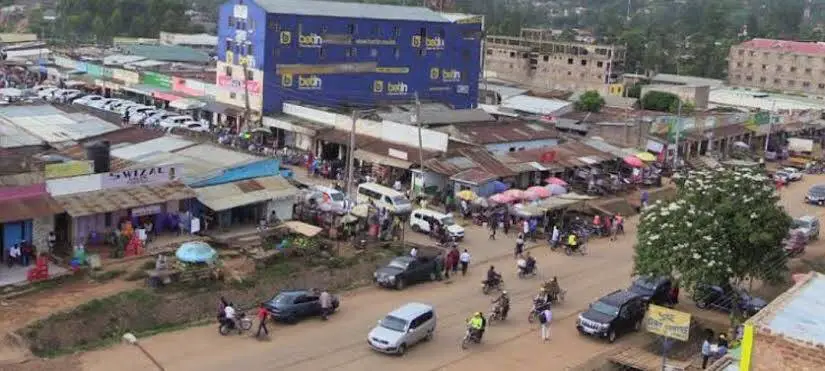
This image is property of bizhack.co.ke.
Tourist Attractions
National Parks and Reserves
Migori County is home to several national parks and reserves, providing opportunities for wildlife viewing and conservation. Maasai Mara National Reserve, situated on the county’s eastern border, offers breathtaking wildlife sightings during the annual wildebeest migration. Nyatike Game Reserve and Ruma National Park are also worth exploring.
Cultural Sites
Cultural sites in Migori County offer insights into the county’s rich history and traditions. Places like Thimlich Ohinga, a UNESCO World Heritage Site, and Ngege Kunge Rock Shelter provide glimpses into the past, showcasing architectural and artistic wonders of ancient communities.
Natural Landmarks
The county’s natural landmarks are a sight to behold. Lake Victoria, the largest freshwater lake in Africa, offers beautiful sunsets and opportunities for water-based activities. The Nyanza Escarpment and its scenic viewpoints provide stunning panoramic views of the surrounding landscapes. Other notable natural attractions include Migingo Island and Osiri Gold Mines.
Recreational Activities
Migori County offers various recreational activities for both locals and tourists to enjoy. Visitors can engage in fishing on Lake Victoria, birdwatching in the wetlands, and camping in scenic locations. The county’s natural beauty and diverse landscapes provide the perfect backdrop for outdoor adventures and relaxation.
Politics
Governor
The county is led by an elected Governor who is responsible for the overall administration and development of Migori County. The Governor plays a crucial role in implementing policies and initiatives that promote the welfare of the residents and drive the county’s progress.
Members of County Assembly
Members of County Assembly (MCAs) are elected to represent the interests of their respective wards. They serve as the voice of the people at the county level and play a legislative role in the governance and decision-making processes of Migori County.
Political Parties
Migori County is home to various political parties, reflecting the democratic nature of the country’s political landscape. Residents have the freedom to align themselves with different political ideologies and parties, contributing to vibrant political discourse and participation.
Election History
The county has a history of active political participation, with residents voting in national and county elections. Over the years, Migori County has witnessed competitive electoral processes, with candidates representing different political parties vying for various positions. The peaceful conduct of elections is crucial in ensuring the democratic representation and progress of the county.

